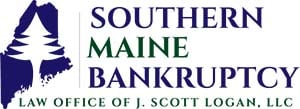Is Mortgage Foreclosure Avoidable?
Since the housing crash, I have tried to help homeowners seek mortgage modifications, one of several options to avoid a foreclosure. Unfortunately, the process is extremely time-consuming. Most mortgage modifications take a year to complete. It usually doesn’t make financial sense to hire a lawyer to help you get a modification. However, in Maine, when a lender files a foreclosure lawsuit, homeowners are legally entitled to mediation. This is where hiring counsel who is experienced in mediation is useful.
I am J. Scott Logan, and I have the knowledge to help you use the mediation process to fast track your loan modification application. As one of only two bankruptcy lawyers in the state who have been court-appointed mediators, I have the knowledge to help you use the mediation process to expedite your loan modification application. Seeking a loan modification in the context of a foreclosure mediation can achieve the results you are seeking in a fraction of the time and at a fraction of the cost. If modification fails, we can also consider filing Chapter 13 to get rid of a second mortgage and/or get caught up with the first mortgage over up to five years.
What Are My Foreclosure Options?
You do not have to face the dread of losing your home alone. Speaking openly and honestly with an experienced attorney as soon as possible can help you make sound decisions. You may not realize that you have several options for avoiding foreclosure, including:
- Reinstating your mortgage – You will not need your lender’s approval to request a reinstatement of your mortgage. You ask your lender to provide for the total amount you owe on your mortgage to date and pay it. In Maine, you may reinstate your mortgage up to the very day before a final foreclosure sale.
- Repayment plan or forbearance – You may negotiate with your lender to pay your current mortgage plus an agreed-to sum of the back payments until you are caught up on the amount you owe.
- Modifying your mortgage – Mortgage modification involves pursuing a lower monthly payment by looking to reduce your loan’s interest rate or principal balance or the length of the loan.
- Renting your property – Rental property is at a premium in Maine and your mortgage payment may be low enough that renting out your property could cover your monthly mortgage.
- Deed-in-lieu of foreclosure – Also known as a “friendly foreclosure,” or giving the property back to the bank. You may wish to vacate the property and get your lender’s approval to return the property to them rather than go through foreclosure.
- Bankruptcy – If eliminating your credit card payments, personal loans and other debts through bankruptcy discharge means you will be able to pay your mortgage, then filing for bankruptcy may be a good solution.
- Refinancing your mortgage – If you have built enough equity in your property and your credit is still in reasonably good standing, you may qualify to refinance your mortgage.
- Selling property – You may wish to speak with a qualified real estate who has foreclosure experience to list your property for sale.
- Pursuing a short sale – If you owe more on your property than it is worth, a short sale may be a viable solution. You will need to get your lender’s approval to complete a short sale.
- Cash for keys – Often I can help you obtain a few thousand dollars for relocation expenses in exchange for your cooperation in the foreclosure process.
Solutions With Confidence
At the Law Office of J. Scott Logan, LLC, I offer free initial consultations so you can learn more about how an attorney can help you navigate the various pathways to avoiding foreclosure. Call my office in Portland at 207-613-8590 or send me an email to start the conversation.

